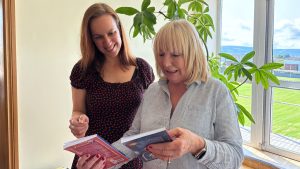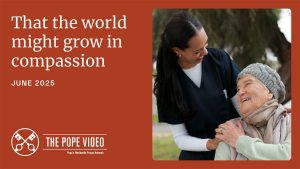The maturing effect of having a baby
 David Gaffney considers how bringing a child into the world and rearing it responsibly may transform a relationship. Nature, he says, can compensate for any deficiencies in maturity in a young couple.
David Gaffney considers how bringing a child into the world and rearing it responsibly may transform a relationship. Nature, he says, can compensate for any deficiencies in maturity in a young couple.
More and more we hear things like “The whole country is breaking-up” – as if the very idea of a committed relationship is in meltdown and emotional immaturity is rampant. So it was a consolation to me to find someone believing that nature is cleverer than us all, and has its own ways of forcing emotional maturity on the unwary!
RTE family psychologist David Coleman assures first-time parents that even if they “feel that they are not very emotionally mature…the responsibility of being in full charge of somebody else and somebody else’s life is very focusing for the mind”, and he tells them that they will surprise themselves by growing-into the role. People, he adds, addressing himself to new fathers, often don’t anticipate the degree of love and protectiveness which they feel for their new baby.
Interesting, too, is how he thinks all this happens: “Becoming a parent allows you to draw on hitherto undiscovered strengths… I think people find new reserves of emotional connectiveness”. In other words, the experience of fully connecting with the new human being, “turns around” parents and gets them out of their own skin.
But his observations – interesting and encouraging in themselves – also throw a helpful side-light on the quality of the parents’ life together as a couple.
The way you will recognize a couple who are together for the long haul is when you hear one partner say about the other: “I knew that he (or she) is there for me, no matter what; I can depend on my partner, through thick and thin”.
Now such a couple have come a long way from the stage when they were two people innocently infatuated with one another, even mutually hero-worshipping, each hoping for some of the beloved’s characteristics to rub off. That stage needed to pass through a testing period. If it did not, there was danger eventually of a partner even beginning to look for the fulfilment of dreams elsewhere.
When, however, you hear one partner say that the other “came through for me” in some difficult situation, you are now convinced that this couple has a future. One partner might report of the other: “She went on working so that I could finish college”. Or, “All the months the baby was sick, he really pulled his weight”. Or, “That time I was in trouble with the police, she stood by me”. These kind of testimonies show that each partner has come to a deeper appreciation of the real “You”. This kind of growth – by means of the relationship – has stretched and expanded the personality of each.
Here, finally, is the point where, I believe, what has happened to this relationship as a couple mirrors exactly what happened to each of them after their baby was born. The coming of the baby forced a turn-around in each of their lives, because (as we’ve seen) now it was no longer one’s own existence which was the centre of attention, but somebody else’s.











